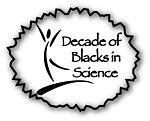First, I need to make a correction. The is the 31st Biennial IEC Confrence, not the annual. Biennial means every two years. Each day of the IEC conference is organized around one of the Tinbergen's 4 Questions.
Day one of the conference is all about Behavior and Development.
Development & Behavior - describes how organisms come to behave in a way that is thought to be 'typical' of its species and this is called species-typical behavior. Species-typical behavior is important for the organism because behaving 'correctly' keeps the animal safe from danger and helps it utilize resources - such as what is the right kind of food to eat or prey to hunt, where and how to find appropriate shelter, and also how to interact with conspecifics, or others of its species, in a social manner which would include mating and parenting.
 For a long time, we thought of species-typical behavior as built-in to the organism. Animals are simply born, hatched or emerging knowing what to do and doing it. For example, ducks that follow their mother after hatching, or baby antelope that can gallop, run and nurse its mother soon after birth. Or the breed differences between sheep. Black face sheep are known to be very being very good mothers, whereas Suffolk are known for being less so. I learned in the talk by Dr. Cathy Dwyer of Scottish Agricultural College titled “Variation in maternal behavior affects offspring behavior and development in sheep”, that these breed-typical behaviors are based on subtle behavior cues coming from both the mother sheep, called a ewe, and the baby sheep, called a lamb.
For a long time, we thought of species-typical behavior as built-in to the organism. Animals are simply born, hatched or emerging knowing what to do and doing it. For example, ducks that follow their mother after hatching, or baby antelope that can gallop, run and nurse its mother soon after birth. Or the breed differences between sheep. Black face sheep are known to be very being very good mothers, whereas Suffolk are known for being less so. I learned in the talk by Dr. Cathy Dwyer of Scottish Agricultural College titled “Variation in maternal behavior affects offspring behavior and development in sheep”, that these breed-typical behaviors are based on subtle behavior cues coming from both the mother sheep, called a ewe, and the baby sheep, called a lamb.  The reason why these two breeds or sheep are different in their parenting styles is because they different in how much they nurse their young and interact with their lambs when they are nursing. These parenting differences also influence the social behavior or flocking tendency of lambs with other sheep.
The reason why these two breeds or sheep are different in their parenting styles is because they different in how much they nurse their young and interact with their lambs when they are nursing. These parenting differences also influence the social behavior or flocking tendency of lambs with other sheep.Suffolk sheep Image credit: http://www.faculty.ksu.edu.sa/

These seemingly immediate and natural behaviors were once explained as being innate or instinctual to the organism. But it is important for me to explain to you that instinct doesn't mean genetically hard-wired. In fact, the idea of innate or instinctual behavior isn't set in stone.
Even what we thought of as instinctual behavior is subject to development, in other words, it happens because of some sort of preparation to do the behavior.
These research studies are great examples of the scientific process and how science helps us discern more information about the everyday - seeing wonder and nuance in common phenomena.
In other words, until researchers decided to look at the phenomena more closely and carefully, the behavior of the animals just seemed to happen - automatically, immediately, and naturally. The scientific process - of observation, proposing hypotheses and testing hypotheses, allows for us to update our knowledge. Yes, once upon a time we thought of each of the behaviors mentioned earlier as instinctual. Now, with hypothesis testing we are learning that these behaviors are developed and animals are prepared (unconsciously and sometimes before birth/hatching) to do these behaviors. Not only can we update our knowledge about animal behavior, but animals can also 'update' their capacity to behave in a way natural for their species.
















No comments:
Post a Comment